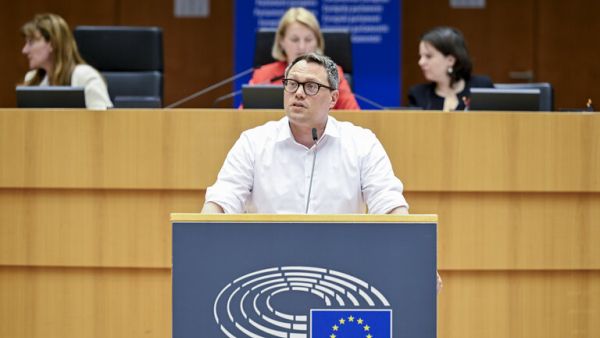After six hours of negotiating, the European Parliament and member states reached a deal on how to rule genetically modified organisms (GMOs) at the European Level.
Socialists and Democrats in the European Parliament welcome the possibility for member states to ban certain GMOs, but regret that the legal base chosen for the directive is on the internal market instead of on environmental grounds, and they also regret the lack of a fund on financial responsibility as requested.
S&D spokesperson on the environment and public health, Matthias Groote stated:
"The Parliament had given itself a strong mandate in the negotiations with the Council of the EU.
"It is a fact that the overwhelming majority of European citizens do not support the cultivation of GMOs. I am happy that this position is reflected in the final outcome of the negotiations.
"Our main concern is safety and transparency. Member states and consumers can now feel safer about GMOs. This reflects in the non-authorisation of new GMOs before the directive comes into force.
"Furthermore, the newly negotiated directive gives EU farmers and consumers greater certainty and a stronger legal framework; especially as member states now have to take measures to guarantee no contamination on the borders.
"However, we regret that there will not be an introduction of a fund to compensate farmers whose crops have been contaminated."
S&D MEP in charge of the dossier, Gilles Pargneaux, added:
"It was a very tough negotiation, but we managed to guarantee consumer's protection and safety for farmers. Member states must implement measures for border zones where two types of crops coexist to avoid the contamination of traditional crops by GMOs from neighbouring member states. The Commission committed itself to evaluate national measures regarding financial compensation to farmers in case of accidental contamination.
"From now on decisions on any authorisation will be taken on grounds of independent and scientific-based evaluations. Given the existing doubts about current evaluations of risks undertaken by the European Food Safety Agency (EFSA), the Commission will review and reinforce the rules of such evaluations in two years.
"Also, member states will be able to limit or ban GMOs in their territory on environmental, agricultural or socio-economic grounds. They will also be able to cancel a previously granted authorisation on the same grounds."
The agreement will be voted on by the environment committee in mid-December, and the European Parliament could vote on it at its plenary session in January.









